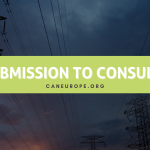At the global level, growth in renewable power has been strong over the past five years, overpassing all the other fuels in growth and competitiveness. Globally, too little is happening in heating, cooling and transport where the barriers are still nearly the same as ten years ago. As for Europe, while the share of renewable energy keeps increasing, investments have fallen yet again by 4% since 2018, according to REN21’s Renewables 2020 Global Status Report (GSR), released today.
We need an immediate switch to efficiency and renewable energy in all sectors in the wake of the COVID-19 pandemic.
The Director of Climate Action Network (CAN) Europe, Wendel Trio commented: “Governments need to support the European Green Deal and ensure the recovery out of the current crisis increases investments in renewable energy with the aim of making the European energy system 100% renewable. For this to happen, we need to remove all barriers to energy savings measures and further renewables deployment and we have to do that at an incredibly speedy pace.”
REN21’s Executive Director, Rana Adib, added: “Our report sends a clear warning: the progress in the {global} power sector is only a small part of the picture. And it is eaten up as the world’s energy hunger continues to increase. If we do not change the entire energy system, we are deluding ourselves.”
“Starting from now, we can and should increase roughly three-fold the contribution of renewable energy sources by 2040. Reaching the Paris Agreement’s objectives without an unprecedented growth of renewables will be very difficult”, added Wendel Trio.
The report points out that “green” recovery measures, such as investment in renewables and building efficiency, are more cost effective than traditional stimulus measures and yield more returns. It also documents that renewables deliver on job creation, energy sovereignty, accelerated energy access in developing countries, reduced emissions and air pollution.
Some of the key findings of the report for Europe:
- The share of renewables in electricity generation reached 35% in 2019, the share in some countries was much higher.
- Renewable energy investment was down 4% from 2018, with a sharp contrast across technologies. In capacity only, investment in wind energy was down 24%, but was up in solar PV by 25% – largely driven by low-cost projects in Spain.
- The share of electricity met by renewables reached historic levels in Europe in early 2020 – due to changes in electricity markets driven by the COVID-19 pandemic:.
- In the EU and the United Kingdom, coal-based power generation fell 29% between 10 March and 10 April
- Renewables delivered 46% of all power generation in early 2020, up 8% compared to 2019.
- In a 2019 survey [1], 90% respondents agreed that the EU should encourage greater investment in renewable energy; showed widespread support for all renewable technologies.
The report is available here: www.ren21.net/reports/global-status-report/
Europe’s factsheet: https://drive.google.com/file/d/1ngjRgoVEcfQX5obe9WgLECGwlsHxUz4T/view?usp=sharing
ENDS
Contact:
Cristina Dascalu, communications coordinator, cristina@caneurope.org
Climate Action Network (CAN) Europe is Europe’s leading NGO coalition fighting dangerous climate change. With over 170 member organisations active in 38 European countries, representing over 1.500 NGOs and more than 47million citizens, CAN Europe promotes sustainable climate, energy and development policies throughout Europe.



